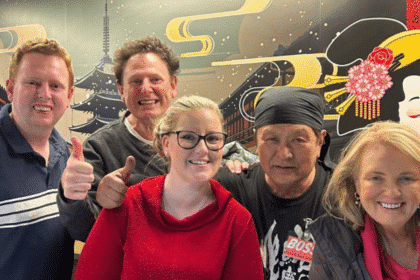Losing a pitch is like a bad one night stand, not to be mentioned and better off forgotten. Pitching is the speed dating of our industry, says Isobar’s executive strategy director, Simon Small.
Losing pitches, though, is a reality of the job. Right now at an agency somewhere in the country, someone is finding out the bad news. You know those mind bending statistics that run along the lines of one person dies in Australia every three minutes, there’s likely a similar but slightly less morbid pitch failure calculation. Understandably, it’s something many agencies like to keep a tight lid on. After all, no one likes to be a loser.
“If there’s not a match, it’s possibly best for both. If we’re happy with our work but the client isn’t, that’s a potential mismatch avoided,” says Isobar’s Small.
Nevertheless, when the inevitable happens and a pitch is lost, it’s preferable to be gracious in defeat rather than being the snarky executive sulking in the corner.
With a number of key accounts recently up for grabs for creative and media agencies including Coke, Mastercard and Microsoft, there are plenty of smiling and sad faces doing the rounds. The Woolies $240 million media account made headlines when it kept on agency Carat for another term with MediaCom and OMD being bumped off after a long and protracted pitch process.
Any agency worth its salt can admit when they’ve lost, as well as when they’ve won, says Naked Communications’ CEO, Carl Ratcliff. To become the gracious loser, he says you have to get rid of the difficult sore loser and the, even worse, passive-aggressive loser.
“Banish both,” he says, “And the pitch gods will be more likely to smile on your next round.”
David Pountney, general manager of creative technology company DT Melbourne, says: “If you haven’t heard within two weeks of the pitch, the adage ‘if they’re not talking to you, they’re talking to someone else’ is probably true.”
However if you have received bad news, Naked’s Ratcliff says it pays to part on good terms.
“When you lose a pitch, connect with the client and wish them well. You might receive a call a few months down the line when the new marriage hasn’t worked out as well as thought,” he says.
JWT Melbourne’s managing director, Michael Godwin, recommends putting the losses into perspective. “We were unsuccessful in a pitch recently and when we came together to share the news, I made sure I reminded everyone that over the past 12 months, we’d won well over $2 million worth of new business revenue, which for a Melbourne-based agency is a result we should all be proud of,” he says.
You can’t win ‘em all but when you do have a win, Godwin says agencies must make sure they celebrate.
One team smiling recently is Huckleberry Agency, a full-service shop, part of the Dentsu Aegis network. The agency’s recent wins including Funtastic and snack bar brand Carmen’s and MD Melissa Roberts says this means the agency’s “losing wounds” are healing.
“We are expected to win with dignity and lose with grace… or is it win with grace and lose with dignity?” says Roberts.
Let’s face it: both results drive us to the pub either crying over spilt milk or sipping Bollie!
Of course it’s not just the head of the agency who needs their losing wounds tended to, the team who have put in hours of work also need a hug.
“When you lose a pitch, don’t say to your team, ‘We were robbed’, even though you might feel that way,” says Ratcliff. “Instead, chase and understand why you lost. Listen to any ‘reasons’ given, post rationalised or otherwise, and unpack them with, and in front of, your team.”
As long as the agency can connect the dots on the loss, the situation doesn’t have to equal a black pit of despair.
Isobar’s Small says: “A great way to get over losses is to use them to learn. What did we do wrong, how could we do better? It’s really disappointing when clients give generic or meaningless reasons for not being selected, we can’t use that to get better.”
DT’s Pountney adds: “It’s one thing to accept defeat but quite another to learn from it. Client feedback can be as valuable as the contract you pitched for. Where possible this should be shared with the entire team, after all, the best way to avoid this entire process is to win and sustained winning will only come from continued improvement.”
In fact, a loss may actually end up being a win.
“Last year JWT pitched for a project with a public sector client,” says Godwin. “We didn’t win, but we maintained the contact and within six months we’d been awarded a more profitable project than the one we missed out on – and this one without having to pitch.”








